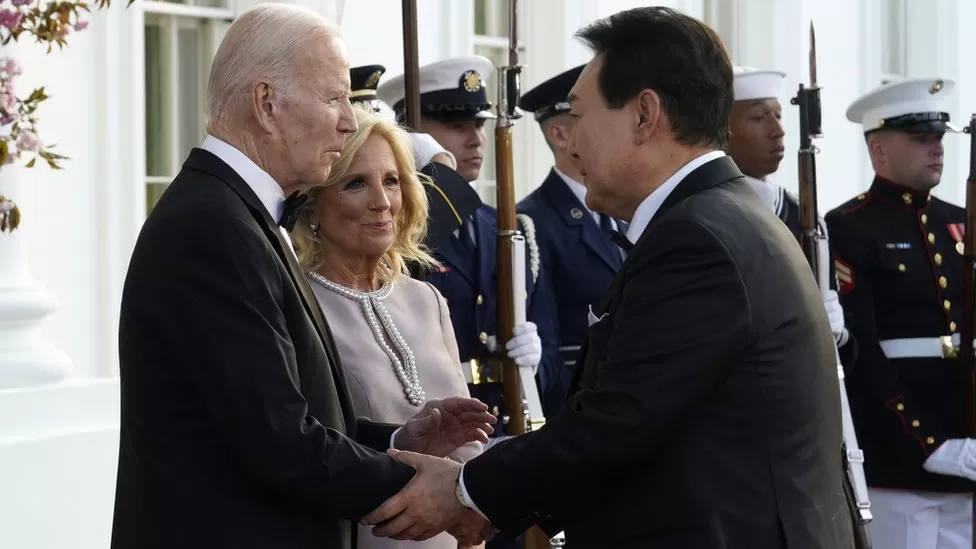The United States and South Korea have agreed to a new nuclear weapons deal that will strengthen their cooperation in deterring a potential attack from North Korea. Under the agreement, the US will periodically deploy nuclear-armed submarines to South Korea and involve Seoul in its nuclear planning operations. In exchange, South Korea has agreed to not develop its own nuclear weapons.
This new agreement comes as concerns are rising on both sides about the nuclear threat posed by North Korea. The country is developing tactical nuclear weapons that can target South Korea and refining its long-range weapons that can reach the US mainland.
The US already has a treaty obligation to defend South Korea and has previously pledged to use nuclear weapons if necessary. However, some in South Korea have started to doubt that commitment and call for the country to pursue its own nuclear program.
The South Korean President, Yoon Suk-yeol, who was at the White House for a state visit, said the Washington Declaration marked an “unprecedented” commitment by the US to enhance defense, deter attacks, and protect US allies by using nuclear weapons.
The new agreement is a result of negotiations that took place over several months, according to a senior administration official. Under the deal, the US will make its defense commitments more visible by sending a nuclear-armed submarine to South Korea for the first time in 40 years, along with other strategic assets, including nuclear-capable bombers. The two sides will also develop a Nuclear Consultative Group to discuss nuclear planning issues.
Politicians in Seoul have long been pushing Washington to involve them more in planning for how and when to use nuclear weapons against North Korea. As North Korea’s nuclear arsenal has grown in size and sophistication, South Koreans have grown wary of being kept in the dark over what would trigger the US to push the nuclear button on their behalf.
The US sees dissuading South Korea from going nuclear as essential, fearing that if it fails, other countries may follow in its footsteps. In return, the US has demanded that South Korea remain a non-nuclear state and a faithful advocate of the non-proliferation of nuclear weapons.
The US hopes to convince North Korea to give up its nuclear weapons, but last year the North Korean leader Kim Jong Un declared the country’s nuclear status “irreversible”. Some experts say it now makes more sense to discuss arms control rather than denuclearization.
The new Nuclear Consultative Group is seen as a big win for South Korea, providing the increased involvement the South Korean government has been asking for. However, it remains to be seen whether it will quell the public’s anxieties. The agreement does not ink a total commitment from the US that it would use nuclear weapons to defend South Korea if North Korea were to attack.
While the declaration has many positive aspects, it is unlikely to fully satisfy the influential and increasingly vocal group of academics, scientists, and members of South Korea’s ruling party who have been pushing for Seoul to arm itself. Dr. Cheong Seong-chang, a leading proponent of South Korea going nuclear, said that while the declaration had many positive aspects, it was “extremely regrettable that South Korea had openly given up its right to withdraw from the Nuclear Non-Proliferation Treaty [NPT]”, adding that this had “further strengthened our nuclear shackles”.


